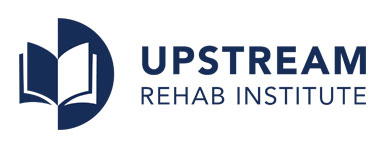The Orthopaedic Proficiency Certification (OPC) is a tier 1 certification earned by clinicians who demonstrate the highest level of evidence-informed orthopaedic rehabilitation skills. A clinician with the OPC designation represents someone who is a movement expert, integrating advanced technical skills and pain neuroscience with comprehensive exercise prescription to skillfully manage patients along with the entire healthcare team.
This certification is open to all clinicians, but specifically designed for PTAs and ATs. Clinicians who wish to earn the Orthopaedic Proficiency Certification must successfully complete all courses listed below, as well as a comprehensive written and live practical examination.
All required coursework for the Orthopaedic Proficiency Certification has been pre-approved and is considered recommended by the APTA to complete the content-specific requirements for the PTA Advanced Proficiency Pathways program in the area of orthopaedics.
RCS: Rotator Cuff Syndrome: Evidence based Applications for Primary and Secondary Impingement $249
Designed to demonstrate innovative treatment planning in functional rehabilitation of the upper kinetic chain with evidence based interventions. Learn to assess and treat rotator cuff injuries with treatment strategies based on the latest research and literature. With hands on lab sessions you will return to your practice with new and practical skills that are immediately applicable for improved patient outcomes.
FRK: Functional Rehab of the Knee: Concepts of Evidence Based Treatment $249
Focuses on evidence -based therapeutic value-designed exercise applications that promote tri-plane stabilization of the lower extremity. Attendees will explore the most up to date treatment plans for selected knee pathology. They will participate in labs which will include pre-functional mobility, tri-plane stabilization and balance proprioception training.
PAR: Post- Arthroplasty Rehab of the Knee and Shoulder $249
Focuses on current evidence based interventions for promoting high level functional return to a patient’s requested level of daily activities. This presentation will be based on the speaker’s 39 years of practical experience in treating total joint replacement of both the knee and shoulder. Today’s surgical procedures including less invasive options such as unicompartmental (knee) and hemiarthroplasty (shoulder) will be presented. Reverse prosthesis for total shoulder replacement will update a protective exercise protocol based on current literature.
This course focuses on enhancing the participant’s knowledge and understanding of how pain works and how it can impact those affected by it. In addition, an emphasis is placed on the clinical reasoning processes and technical skills related to effective patient communication, clinical management, and pain neuroscience education. This course will enhance the participants’ knowledge and understanding of pain and equip them to employ modern pain science principles and interventional techniques to help more effectively manage those suffering from pain.
*Must complete both the MPS online course and MPS Onsite lab*
MTX: Skilled Integration of Manual Therapy and Exercise $495
Improve exercise prescription along the continuum of the rehab process. Principles of exercise are reviewed and analyzed regarding implementation, namely through “phase progression.” The ability to make initial intervention choices and HEP prescription more impactful will be strengthened by matching common manual interventions and impairments to therapeutic exercise to maximize intersession gains. Advanced exercise progressions will be demonstrated and clinical reasoning will be explained so that the concept of “phase progression” is applied. Techniques to help bridge gaps in treatment progression will be discussed, specifically, PNF will be shown as an intervention to progress from passive manual intervention to independent active movement.
